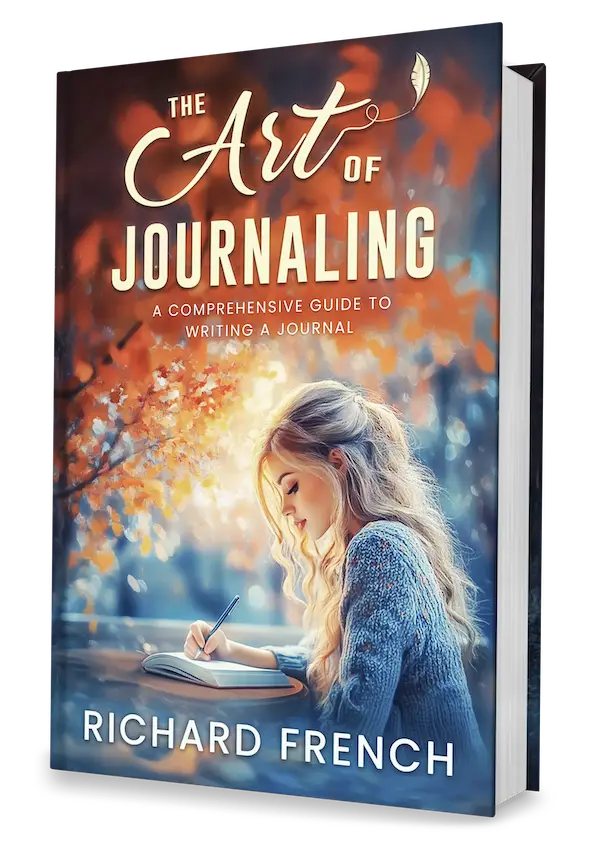In an era where 67% of students feel overwhelmed by academic and social pressures, journal writing has become a vital tool for self-expression and stress management. This isn’t merely anecdotal wisdom—research from the Center for Writing Education indicates that students who journal for just 10 minutes daily show a 23% improvement in emotional regulation and a 17% increase in academic writing skills. The key to success? Well-crafted journal prompts for students facilitate this daily practice, turning blank pages into powerful tools for academic and personal growth.
Essential Journal Prompts for Students: Getting Started
The journey into journaling often begins with uncertainty. Experienced educators have observed that students who start with simple, engaging prompts tend to develop lasting writing habits. One high school English teacher describes how her students transformed from reluctant writers to enthusiastic journalists through gradual, guided practice. The key lies not in perfect prose, but in authentic expression. These foundational prompts have helped countless students discover their voice on paper.
- “Today I learned…”
- “The most interesting conversation I had today was…”
- “One thing I’d like to know more about is…”
- “Something that made me smile today…”
- “A challenge I faced and how I handled it…”
Daily Reflection Prompts
The rhythm of daily writing establishes a powerful foundation for self-discovery. School counselors observe that students who mark their days with brief writing sessions show remarkable growth in self-awareness and emotional regulation. Morning prompts set intentions and create focus, while evening reflections assist in processing experiences and preparing for tomorrow. These thoughtfully chosen journal prompts for students create natural bookends for each day’s journey.
Morning:
- “One thing that might make today great is…”
- “Three small goals for today are…”
- “This morning I feel… because…”
Evening:
- “The most interesting part of my day was…”
- “Something that challenged me today…”
- “Tomorrow I look forward to…”
- “One thing I did well today…”
Journal Prompts for Students with Social Challenges
Navigating Peer Pressure and Bullying
Each school year introduces new social dynamics and challenges that test students’ resilience. Veteran teachers notice that while the superficial aspects of peer pressure may shift, the fundamental emotional impact remains steady. Through structured journaling, students uncover their inner strength and develop practical strategies for maintaining their authenticity in tough situations. These journal prompts for students stem from genuine experiences and offer a framework for navigating difficult social interactions.
Social Pressure Prompts:
- “Today I felt pressured to… and this is how I handled it…”
- “Three ways I can stay true to myself when others want me to change…”
- “A time I made the right choice despite what others wanted…”
- “Someone I admire for standing up for their beliefs…”
- “What I wish others understood about me…”
Bullying Response Prompts:
- “When someone makes me feel small, I remember…”
- “Three qualities that make me strong inside are…”
- “A time I helped someone else who was being treated unfairly…”
- “Words I can use to stand up for myself…”
- “People I trust to talk to when things get difficult…”
Digital Life and Cyberbullying
Many students navigate a complex digital landscape where a single screenshot can turn a private moment into a public spectacle. School counselors often notice that what happens online rarely stays online, as digital interactions become deeply woven into students’ daily lives. One middle school teacher recounts how her students silently struggled with cyberbullying until she introduced journal writing as a safe space for processing their online experiences. Through regular reflection, students establish stronger digital boundaries and learn to differentiate between meaningful connections and toxic online relationships.
- “How social media made me feel today…”
- “A challenging online situation and how I handled it…”
- “Three ways to stay safe online while being social…”
- “What I wish people knew about their words online…”
- “Positive ways I can use social media…”
- “When I see cyberbullying, I can…”

Building Healthy Friendships
The landscape of friendship during school years often resembles shifting sands, necessitating constant navigation and adaptation. Seasoned educators observe how students manage the delicate balance of maintaining old friendships while forming new ones. A high school counselor explains that students who regularly reflect on their relationships build stronger social skills and establish clearer boundaries. These journal prompts for students draw upon numerous student experiences to address the intricate dynamics of school friendships.
- “Qualities I value most in friends are…”
- “A time when friendship was challenging and what I learned…”
- “How I can be a better friend to others…”
- “Signs of a healthy friendship I notice are…”
- “Ways I can make new friends while being myself…”
- “What boundaries in friendships mean to me…”
Understanding Relationships and Attraction
The emergence of romantic feelings brings both excitement and uncertainty to student life. School counselors note that students often feel overwhelmed by relationship expectations and peer pressure regarding dating. A middle school advisor recalls how structured reflection aided students in navigating these complex emotions while maintaining a focus on personal growth. These journal prompts for students offer a safe space for exploring feelings and developing healthy perspectives on relationships.
- “Qualities I admire in others are…”
- “What respect in relationships looks like…”
- “How I feel about relationship pressure at school…”
- “Ways to handle rejection kindly…”
- “What I value most in relationships is…”
- “Boundaries I want to set in relationships are…”
Group Dynamics and Inclusion
The microcosm of school social groups often reflects the larger society, with its complex web of relationships and unspoken rules. Educators consistently observe how group dynamics can either support or challenge a student’s sense of belonging. A veteran high school counselor notes that students who become aware of group interactions often emerge as natural leaders in their communities. These insights assist students in navigating group situations while preserving their individuality and helping others feel welcome.
- “How I feel in different group situations…”
- “Ways I can help others feel included…”
- “When groups disagree, I can…”
- “What makes me feel welcome in a group…”
- “How I handle group pressure…”
Self-Care and Personal Growth Journal Prompts for Students
Building Self-Worth
The journey of self-discovery during school years shapes how students view themselves and their place in the world. School psychologists observe that students who engage in regular journaling practices develop greater self-awareness and resilience. One middle school teacher recalls how a struggling student discovered her voice through daily reflection and eventually became a peer mentor for others. These journal prompts for students create stepping stones toward enhanced self-worth and confidence.
- “Three things that make me unique are…”
- “Challenges I’ve overcome recently…”
- “What makes me feel confident is…”
- “I’m proud of myself when…”
- “Ways I can support myself during difficult times…”
Emotional Intelligence Development
The journey to emotional maturity rarely follows a straight line. Experienced educators observe how students with emotional awareness tackle academic and social challenges with increased confidence. A high school counselor explains how journaling aids students in recognizing emotional patterns and developing effective coping strategies. These prompts arise from years of watching how successful students process and understand their emotional experiences.
- “The emotions I experienced today were…”
- “A situation that triggered strong feelings and how I responded…”
- “Three healthy ways I can express my emotions are…”
- “When I feel overwhelmed, I can…”
- “How my emotions affect my decisions…”
Academic Growth and Learning
Learning goes well beyond memorizing facts and figures. Exceptional teachers recognize that students who reflect on their learning processes develop stronger study habits and a deeper understanding. One high school science teacher explains how journal writing aided struggling students in identifying their unique learning styles and overcoming academic challenges. These prompts guide students in discovering their natural learning strengths while developing effective study strategies.
- “My best learning experience this week was…”
- “A subject I find challenging and why…”
- “Three study strategies that work well for me…”
- “Questions I want to ask in class tomorrow…”
- “How I can improve my study routine…”
Future Planning and Goals
The question, “What do you want to be when you grow up?” often puts unnecessary pressure on students. Career counselors find that students who engage in future planning through guided reflection develop more realistic and fulfilling goals. One guidance counselor shares how journal writing helped an anxious senior transform college preparation from a source of stress into a journey of self-discovery. These prompts encourage students to explore possibilities while taking practical steps toward their aspirations.
- “In five years, I imagine myself…”
- “Steps I can take toward my goals this month…”
- “Skills I want to develop and why…”
- “People who inspire my future plans…”
- “Obstacles I might face and how to prepare…”
Creative Expression
Creativity thrives in an environment of acceptance and exploration. Art and writing teachers consistently notice that students who feel safe expressing themselves develop stronger voices across all subjects. A creative writing instructor reflects on how one hesitant student’s daily journal entries ultimately inspired an award-winning short story. These prompts foster imagination while building confidence in creative expression.
- “If I could change one thing about the world…”
- “A story that begins with an unexpected discovery…”
- “Three impossible things before breakfast…”
- “A conversation between two unlikely objects…”
- “The perfect day would include…”
Gratitude and Appreciation Journal Prompts for Students
Research consistently indicates that gratitude practices enhance emotional resilience and academic performance. School counselors observe that students who regularly reflect on the positive aspects of their lives show greater adaptability during challenging times. One middle school initiated a gratitude journaling program and experienced a 40% reduction in reported stress levels among participants. These prompts assist students in developing a habit of noticing and appreciating the good in their daily experiences.
- “Small moments that brought joy today…”
- “People who made a difference in my life…”
- “Skills or abilities I’m thankful to have…”
- “Challenges that taught me something valuable…”
- “Ways I can show appreciation to others…”
Problem-Solving and Decision-Making
As students’ progress through school, life presents them with increasingly complex choices. Experienced educators observe that students who develop structured approaches to decision-making show greater confidence in facing challenges. A high school advisor shares how journal-based problem-solving helped a student council president navigate complex peer conflicts. These journal prompts for students provide a guide through critical thinking processes while building confidence in their judgment.
- “A decision I need to make and possible outcomes…”
- “Different ways to approach a current challenge…”
- “What I learned from a recent mistake…”
- “How I can turn an obstacle into an opportunity…”
- “Steps to solve a problem I’m facing…”
Finding Balance and Managing Stress
The demands of modern student life often create a complex juggling act between academics, extracurricular activities, and personal time. School wellness coordinators find that students who remain aware of their stress levels develop more effective coping strategies. A study on high-achieving students revealed that those who practiced regular reflection exhibited better stress management during exam periods. These journal prompts for students assist in recognizing early signs of overwhelm while developing practical stress management techniques.
- “Activities that help me relax are…”
- “Signs that tell me I need a break…”
- “Ways to balance school and personal time…”
- “Healthy habits I want to develop…”
- “What peace of mind feels like to me…”

Personal Values and Identity
The teenage years raise important questions about identity and personal values. Educational psychologists note that students who regularly reflect develop a stronger sense of self and clearer principles. One high school teacher shares how identity-focused journaling assisted a transfer student in finding her place within a new school community. These prompts guide students through the process of discovering and expressing their values while remaining adaptable in their evolving self-understanding.
- “Principles that guide my choices are…”
- “Times when I stayed true to my values…”
- “How my beliefs have evolved…”
- “What integrity means to me…”
- “Ways I can make a positive difference…”
Time Management and Organization
Effective time management skills are often crucial for school success. Study skills specialists note that students who reflect on their time use develop more effective organizational systems. A learning specialist shares how time-tracking journals helped struggling students identify and eliminate their biggest distractions. These prompts help students understand their natural rhythms while building practical strategies for managing competing demands.
- “My most productive time of day is…”
- “Tasks I tend to procrastinate on and why…”
- “Strategies that help me stay organized…”
- “How I can better prioritize my responsibilities…”
- “Ways to make routine tasks more engaging…”
Celebrating Progress
Recognizing personal growth builds confidence and motivation for ongoing development. Teachers often observe that students who acknowledge their progress sustain stronger motivation during challenges. A ninth-grade advisor explains how progress journals helped students keep perspective during their difficult transition to high school. These prompts assist students in recognizing and celebrating their journey while maintaining momentum toward their goals.
- “Something I do better now than before…”
- “A fear I’ve overcome or managed…”
- “Progress I’ve made toward a goal…”
- “Ways I’ve grown as a person…”
- “Achievements I’m proud of and why…”
While journal writing serves as a powerful tool for self-expression and personal growth, students should remember that some challenges require additional support. When journaling brings up thoughts of self-harm or harm to others, experiences of abuse, or intense emotions, it is crucial to reach out to trusted adults. School counselors, teachers, parents, and mental health professionals can provide valuable guidance and support alongside the journaling practice.
Journal writing becomes most valuable when it feels like a natural conversation with oneself, but it works best as part of a larger support system. These prompts serve as starting points for self-discovery and expression, and many students find their own meaningful questions to explore over time. The key is to select prompts that resonate personally while maintaining open communication with trusted mentors and supporters.
For students interested in expanding their journaling practice, additional techniques and insights can be found in Write Your Way and The Art of Journaling. Remember, every student’s journaling journey is unique, and there’s no single “right way” to approach these prompts—what matters most is finding methods that support personal growth and well-being.







